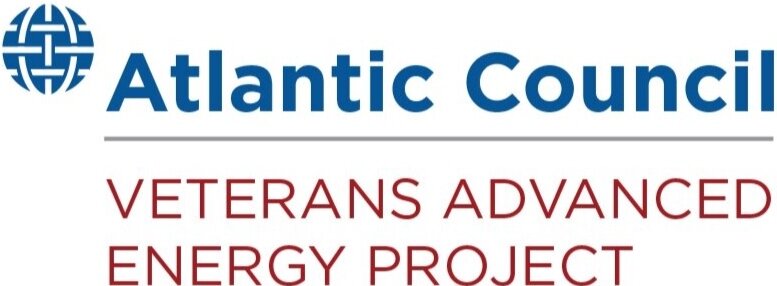Vik Bakshi, a seasoned Director of Strategic Operations at Quanta Services, has made profound strides in the field of Energy Transition technologies and markets, solidifying his place as a key leader in the renewable energy sector. With a rich background in military service, corporate strategy, and leadership roles, Vik has consistently displayed exceptional skills and expertise, contributing significantly to the advancement of clean energy solutions for hydrogen, CCS, battery storage, and other low-carbon technologies.
A graduate of West Point in 2008 with a Bachelor of Science, his early education laid the foundation for his unwavering commitment to excellence. After serving five years in the US Army as an Infantry officer, Vik ventured into the world of business, earning an MBA from Harvard in 2017. His time at McKinsey and Company honed his strategic acumen, where he provided pivotal advisory services in various sectors, including power, oil and gas, and logistics, demonstrating his prowess in navigating complex business challenges.
As a leader in the renewable energy sector, Vik has been instrumental in coordinating with various stakeholders, including government officials and industry leaders, to ensure the seamless execution of energy projects. At Quanta Services, Bakshi's role as a Director within Strategic Operations has been pivotal in developing and implementing go-to-market strategy for Energy Transition technologies and markets. Notably, his leadership extends to starting a new division, Quanta Canada Renewables, which will build some of the largest utility-scale wind and solar projects in Canada.
Vik’s commitment to community service and empowering fellow veterans includes serving as a Board member of the West Point Society of Greater Houston and as the Secretary of a veteran-non-profit, Impact-A-Hero. His active involvement in these organizations has further cemented his reputation as a proactive and dedicated leader within the veteran community.
In conclusion, Vik Bakshi's journey from the military to the forefront of the renewable energy industry exemplifies his unwavering dedication, strategic acumen, and leadership prowess. His relentless pursuit of excellence, combined with his profound commitment to community service, positions him as an invaluable asset in the realm of Energy Transition technologies and markets, further contributing to the broader goal of sustainable and responsible energy development.
If you could have any superpower, what would it be and why?
If I could have any superpower, I would choose the power of invisibility. It would be incredible to wander around undetected, observing the world without being seen.
What are you most excited and concerned about in advanced energy developments?
Excited: the potential for a breakthrough discovery. It feels like in many mature technologies (e.g. PV panels), we are experiencing incremental innovation that moderately drives down costs year-over-year. What's most exciting is the potential for a breakthrough technology, such as a new chemical method of synthesizing clean hydrogen as a fuel source. Something like this could unlock a fundamental shift in how we use electrons and molecules as stores of energy. Most concerned about unrealistic expectations. The reality is that clean energy today is still expensive and largely reliant on government subsidies. Furthermore, we often ignore the true carbon footprint and externalities associated with many clean energy technologies, such as the social and environmental costs of mining for rare earth minerals in developing countries. In order to thoughtfully and effectively decarbonize across key sources of emission (transportation, industry, power, etc.) we need to be more clear-eyed about the true costs, financial and environmental, of various interventions. Otherwise, we risk celebrating and over-hyping progress when we are still far from the desired goal posts.
How did the military influence your career trajectory into energy?
I first became aware of the energy sector while deployed to Kirkuk, Iraq - staring out at the pipelines at night, which were flaring excess methane. I remember watching those flames for as far as the eye could see and wondering if there was not a better use for that potential energy than just burning and emitting. Beyond that, I recall becoming aware of how so much of our defense focus on the Middle East (particularly Iraq) was driven by geopolitics and our reliance on foreign oil. This burgeoning awareness certainly made me start to feel an attraction to the energy sector as an area that is vitally important to American security and prosperity.
Why is energy important to US National Security?
Energy underpins everything we do - every industry, every technology, every city, mode of transportation, every type of shelter, every manufactured good, every physical service - all of it depends on reliable sources of energy. Energy per capita is perhaps one of our most critical drivers of quality of life when comparing mature and wealthy nations versus those in the developing world; cheap, abundant energy becomes a critical unlock to a country's prosperity, as it touches every other corner of the economy. So as we think about our National Security, having secure, reliable, and abundant sources of energy is not only a natural defense (reducing our reliance on foreign powers) - it actually becomes a vital source of defense superiority. When we have certainty of our supply of power and fuels (ideally clean), we have greater certainty of our ability to project our forces by land, sea, and air to wherever is needed to ensure American military dominance. In essence, having certainty of our ability to meet our own energy needs without foreign intervention is part of strategic military advance in any global theater.
Do you have advice you would like to share with other veterans?
The Energy sector is extremely welcoming to veterans, yet it's extremely complex and multi-faceted, with everything from renewables and emerging clean technologies to upstream O&G, and players including developers, asset owners, technology providers, finance partners, service providers, and more. Network with veterans in companies and industries that sound interesting so you can learn how to navigate the space and land in a role that's interesting and developmental for you.



